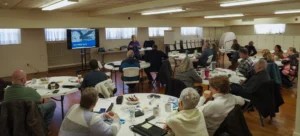
As a parent, for the most part, we have the ability to help and protect our children as they grow. We can make sure they don’t go running in the streets, stick things in the outlets or consume toxic items. We can safeguard the home in which they live, so as to give them a safe and secure environment as they get older. We can try to protect them, by talking about “stranger danger” and the risks of the World Wide Web.
When it comes to helping our kids become socially adequate as they learn to make friends and understand how to be a good one, we lose some of our protective capabilities. I have three children, two boys and one teenage daughter. All three of them have their own personality, and definitely interact with others in their own way.
My 14-year-old daughter has always been a bit reserved. She will sit back, observe, and wait for others to approach her. Once she gets to know someone, or a group of people, she breaks out of her shell and becomes very outgoing. The thing about girls, it seems, is they can have a best friend one week, and the next week, that bestie is a mortal enemy. The one thing I try to instill in all my kids, is to be nice to everyone. If they see someone struggling to make friends, I want them to be the one that approaches that person, regardless of what their friends may say or think.
My twelve-year-old son struggled to make friends early on in school. It wasn’t until we figured out he had issues with ADD, that he was able to turn things around. Before he began taking medication, he had a short fuse with kids his own age. He was also very spastic, so not all kids knew how to take him. When children would refuse his friendship requests, he would resort to threatening them. On one occasion, he told a young boy he was gonna stab him with his pen. I’ll never forget the time I was called by the school, because my son got angry with one of his peers, pulled his pants down on the playground, and tried to pee on the poor kid. That was pretty much the last straw. We knew we had to see a doctor. Once he was diagnosed and began taking medication, he made friends much easier, and was able to deal with his emotions in a better way.

My youngest, who is six, seems to be doing fine when it comes to making friends. The problem is, he doesn’t seem to understand how to differentiate from the way he and his older brother act and speak to one another, compared to the way he should interact with his friends. Just this evening, while at Mighty Mites football practice, he found out a friend from his class was on the team. I watched as they did drills together and laughed and had fun. The lady standing next to me noticed and started talking to me. She happened to be the grandmother of my son’s buddy.
The boys were doing tackling drills on a dummy, when my son suddenly took his mouth piece out and yelled, “Hey Dad, this is my friend, and well . . . he . . . he . . . just watch him . . . he really . . . uhhh . . . ” As he struggled to come up with the words he wanted to express, in my mind I was thinking, “Please say something positive, please say something kind, please tell me how awesome this kid is!”
Instead, I got, “Dad, watch him . . . he really SUCKS!” I didn’t wanna overreact, but I also didn’t want him to think that was ok to say. I immediately pointed at him to come to me. He saw the look in my eyes, and knew he had made a mistake. I explained to him how inappropriate his comment was and demanded he apologize to his buddy and his Grandmother.
The best advice I could give to a parent regarding their child’s ability to make friends, would be to set up play dates with different kids when they are young. Be there to observe and coach them. As they get older and meet new people in school, be available when they are ready to talk about any issues that may come up. Also, if you have a young daughter, the complex world of female teenage drama, is a never ending discussion.




